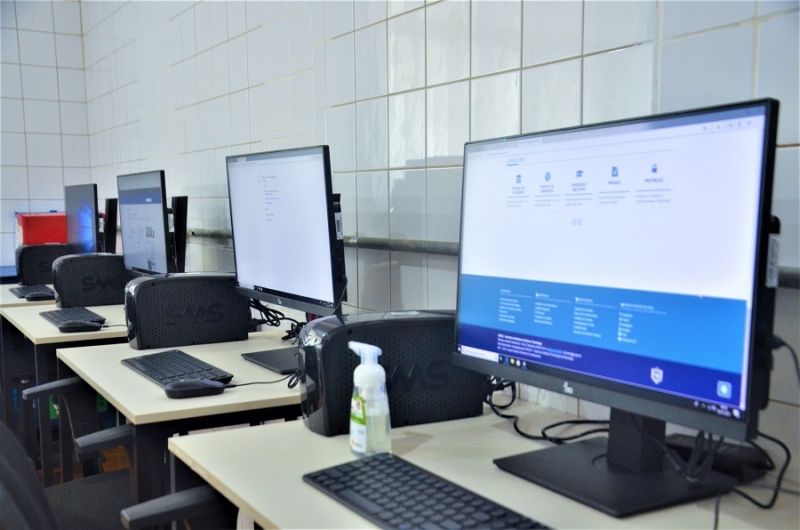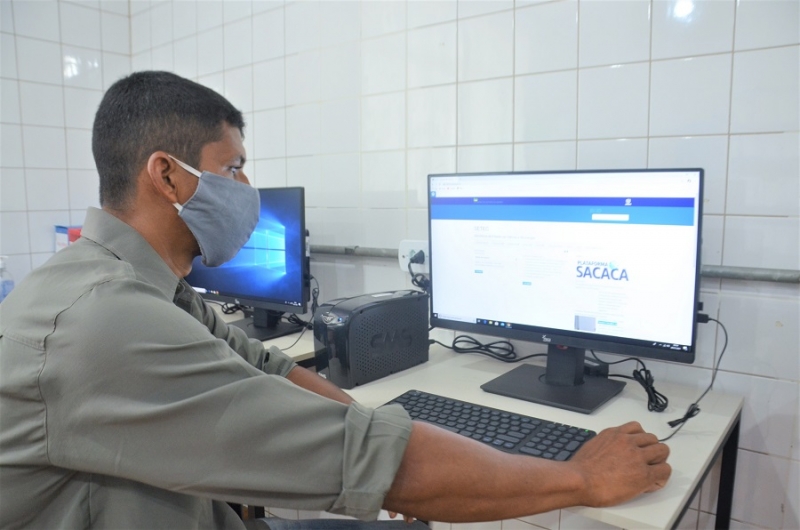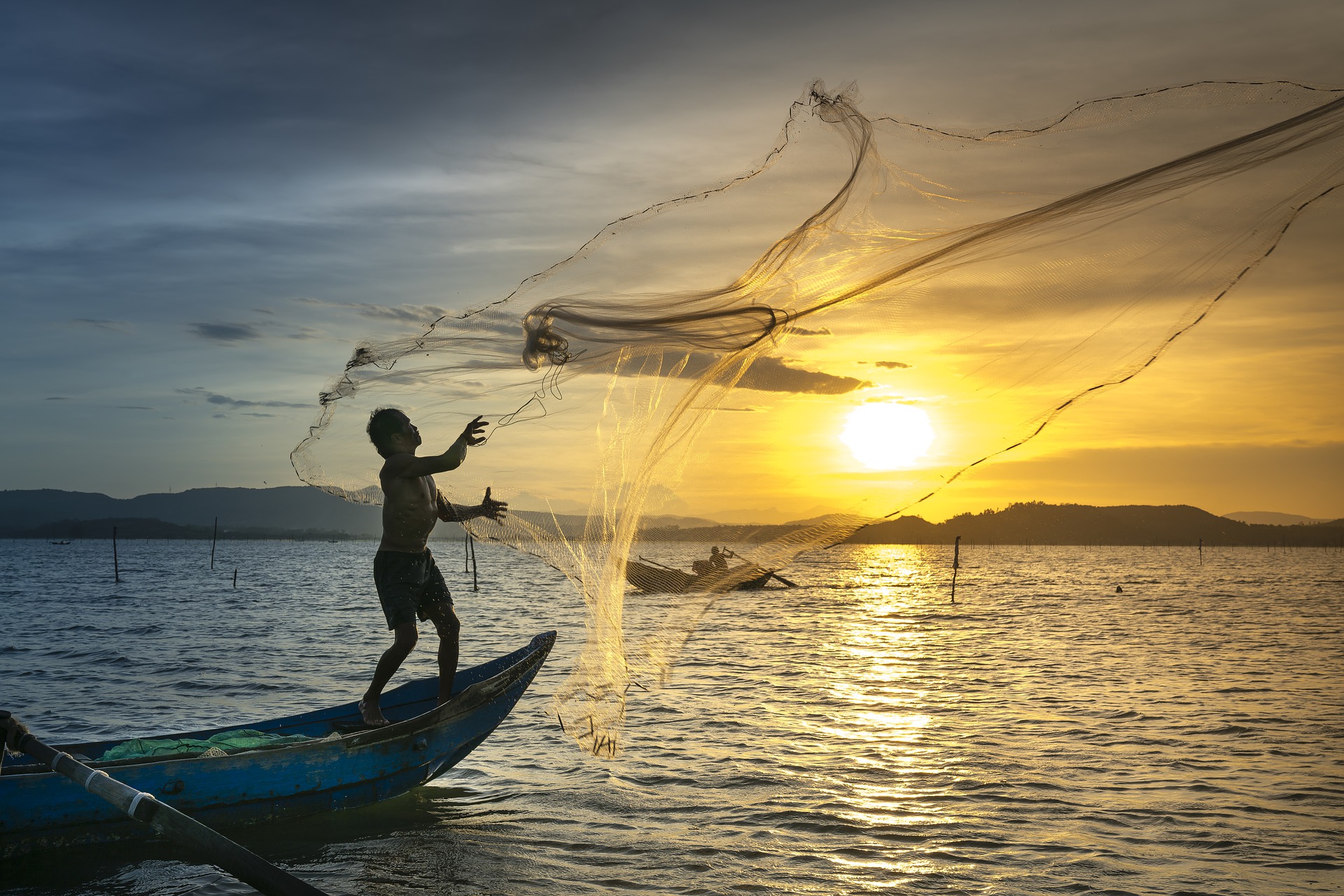The more than 4.7 thousand associated fishermen in the municipality of Santana have a new place aimed at training, qualification, and professional support. Last Thursday (28), the laboratory of the Centro Vocacional Tecnológico (Vocational Technological Center – CVT) was launched, which has computers, internet, and office accessories for the use of these extractivist.
The project is from the Universidade Federal Fluminense (UFF), with resources from the Ministry of Science, Technology, and Innovations (MCTI). The project aims to promote inclusive and participatory research and development actions aimed at strengthening extractive production arrangements in the state of Amapá.
UFF, through its professors, technicians, and undergraduate and graduate students, has been working in Amapá since the beginning of 2019, producing research and articulating with local scientific networks and community and traditional knowledge. President Antonio Claudio Lucas da Nóbrega committed himself directly to the institution’s insertion in this action since it has accumulated almost five decades of uninterrupted presence in the Brazilian Amazon. According to him, this is another project that highlights the university’s role in favor of society.
 “Brazil is going through severe health and economic crisis, and qualification actions create opportunities for these workers to have better-living conditions and maintain their profession, as well as contributing to the local economy, fishing, agriculture, keep moving. One of our missions is, through scientific research, to collaborate on the reduction of inequalities and for the social and economic development of our country. In actions like this, among thousands of others, we have fulfilled our objective and realized ourselves as an institution,” says the President.
“Brazil is going through severe health and economic crisis, and qualification actions create opportunities for these workers to have better-living conditions and maintain their profession, as well as contributing to the local economy, fishing, agriculture, keep moving. One of our missions is, through scientific research, to collaborate on the reduction of inequalities and for the social and economic development of our country. In actions like this, among thousands of others, we have fulfilled our objective and realized ourselves as an institution,” says the President.
Teachers and students from the Schools of Economics, Veterinary, and the Department of Agricultural and Environmental Engineering at UFF acted on the initiative, with the important support of Universidade Federal do Amapá and the local government, through the Secretariat for Science and Technology. Agricultural and environmental engineer Stephany da Costa Soares, master’s student in the Graduate Program in Biosystems Engineering spoke about her experience in the development of the project:
“This was a real gift for my professional and personal training. Through research, I learned a lot about the richness of extractivism, the culture, and the difficulties of the populations that survive from this activity, in addition to the importance of organizing cooperatives to foster economic and social development. It is very gratifying to see almost two years of research coming out of theory and having a real impact on the daily lives of these communities. It is research transforming stories,” celebrates the student.
During the opening ceremony, fisherman Rogério Oliveira, 38, spoke about the importance of the laboratory.
“It will make our lives easier because we will be able to see if our insurances¹ are available. Before, we had to go to another neighborhood to see this. I also want to participate in the courses to improve our work,” declared the fisherman.
For the president of Cooperativa Dourada, Raimundo Nobre, the laboratory was what was missing to complement the support to local fishermen.
“This is a great achievement for our fishermen because it will bring technological advances very close. They need the training, but they still didn’t have a place for it. Today, with this partnership with Secretariat and universities, we have this opportunity for them to study and obtain the benefits [from it],” he said.
 Two other laboratories will also be installed in Amapá, one in Laranjal do Jari, for the Brazil nut production chain and a third, in Macapá, destined for the Açaí chain.
Two other laboratories will also be installed in Amapá, one in Laranjal do Jari, for the Brazil nut production chain and a third, in Macapá, destined for the Açaí chain.
According to the secretary of Science and Technology, Rafael Pontes, the CVTs in Amapá will improve the essential production processes for the local economy.
“The project directly benefits the production chains of açaí, fish, and Brazil nuts, based on the structuring of technological environments open to the extractive communities. This way, we generate more opportunities and encourage the development of these essential sectors,” explained the secretary.
The CVTs national initiative is from the Ministry of Science, Technology, and Innovations (MCTI). In Amapá, the project is supported by the Universidade Estadual do Amapá, the Serviço Nacional de Aprendizagem Industrial (Senai Amapá), Sistema OCB/AP, Sebrae Amapá, and in Santana by the city’s Secretariat for Economic Development.
The CVTs
The Centro Vocacional Tecnológico (Vocational Technological Center – CVT) are teaching and professionalization units, focused on the dissemination of scientific and technological knowledge, in addition to the transfer of technological knowledge applicable to the improvement of production processes.
¹ Insurance refers to a government’s worker compensation (Seguro-Defeso in Portuguese) for the artisanal fishermen who can’t work during fish breeding.




